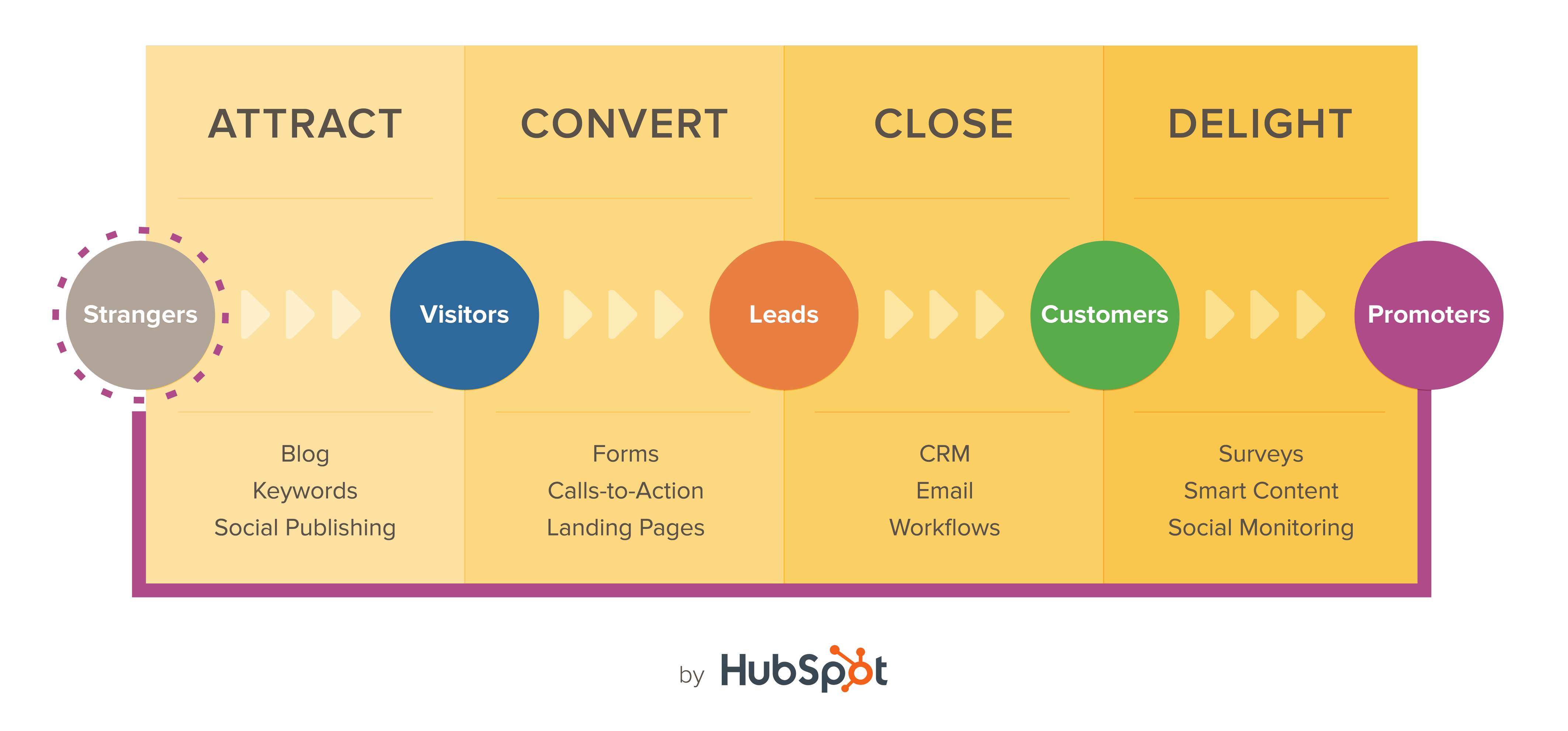According to our partner, HubSpot, Inbound Marketing focuses on creating quality content that pulls people toward your company and product, where they naturally want to be.

The backbone of your Inbound Marketing investment must be to create a plan that will Attract, Convert, Close and Delight people who are considering your products and services. Today, I would like to discuss the first stage of Inbound Marketing, the Attract Stage.
The Attract Stage of inbound marketing involves all of the content creation and content distribution activities you can pursue to attract people to your web site. The Attract Stage needs a strong foundation of keyword research and discovery to ensure content that you create (web pages, blogs, social media, advertising messaging) will have the potential to deliver new visitors to your web site.
Once you have established a strong set of keywords, you will need to develop a content creation and content sharing plan to drive people, who are not familiar with your company, to your website. Search engine optimization (SEO) activities for your website such as weekly blogs, meaningful on-topic white paper downloads, info graphics, videos and reviews are a big part of this stage.
In combination with a relevant, integrated social media program these activities are crucial to attracting people to your company website while they are in their researching phase. If people find your website when they are researching and you are able to offer something to them to capture their email address, you can use email to nurture that potential client until they are ready to buy.
This is where the HubSpot process comes into play. HubSpot is an inbound marketing software platform that helps companies attract visitors, convert leads, and close customers. HubSpot is the tool we recommend that will connect what people are doing on your web site (content being viewed) with activities your marketing and sales people should be doing with these clients.
In other words, you make some rules such as, “if a client downloads a certain white paper, they get added to our email campaign”. If that same client then clicks on a link in an email and downloads another white paper, a sales person is sent a message to make a discovery contact with that potential client to see if your product or service may be of interest to them now or in the future. This is how inbound connects you when the client wants and gives you the highest chance of connecting with that client.
Next time we’ll discuss using the discovery call to convert the right leads to interested prospects…Thanks Robert Dunford
